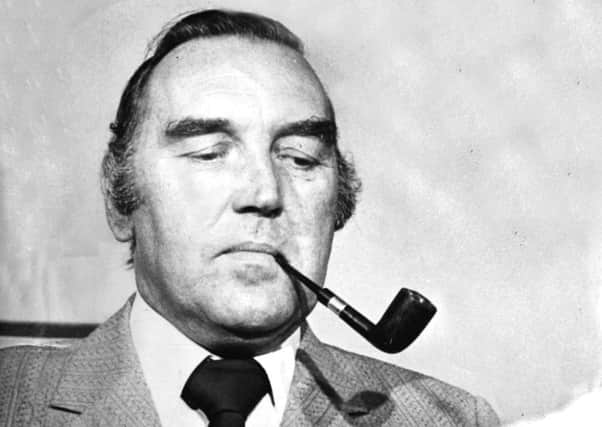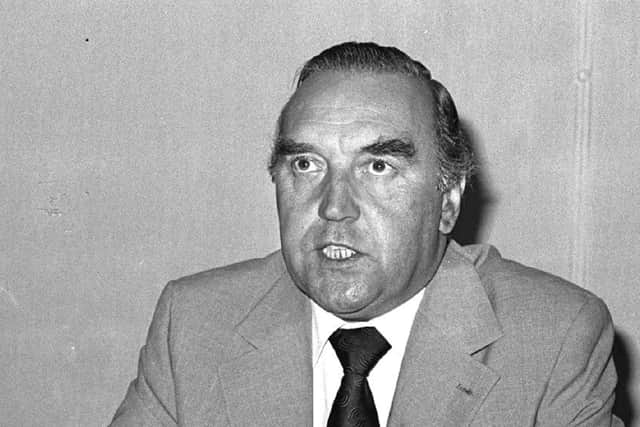OBITUARY: Roy Mason, Secretary of State with a tough security agenda


Ed Miliband had been among those paying tribute to the party veteran and former Northern Ireland Secretary when he died on April 19, dubbing him a man who “spent his whole life trying to improve the lives of working people”.
Born in the Barnsley area of Yorkshire on April 18, 1924, he followed his father into the mining industry at the age of 14.
Advertisement
Hide AdAdvertisement
Hide AdNot long after he began in the pits, he witnessed one miner being carried out dead following an accident, and narrowly escaped injury himself – or an even worse fate – when the roof of the colliery collapsed.


He became involved in the National Union of Mineworkers, and then in 1953 – aged 28 – he stood for election in Barnsley.
He went on to hold the seat for more than 30 years, during which time he rose through the party ranks.
He was appointed defence secretary in 1974, and reportedly advised Prime Minister Wilson not to deploy British troops to break the anti-Sunningdale strike during the Ulster Workers’ Council strike, as well as overseeing the deployment of the SAS to the Province.
Advertisement
Hide AdAdvertisement
Hide AdThe Telegraph records that in 1976 his solid working-class credentials led him to fleetingly consider a leadership bid for the party.
Instead he was appointed Northern Ireland Secretary - a role he would occupy until 1979.
It followed the collapse of Sunningdale, and in 1976 he told the Labour Party conference: “Ulster has had enough of initiatives.”
Instead, his tenure in Northern Ireland was marked by a staunch commitment quelling the violence using the security forces.
Advertisement
Hide AdAdvertisement
Hide AdDuring his time in office, the IRA began to reorganise itself into tighter, smaller local units, instead of larger regional hierarchies, in order to try to combat security forces’ efforts to wipe them out.
A number of sources quote Martin McGuinness as saying that, at the time, “Mason beat the **** out of us”.
Brian Elliott, a Yorkshire historian who has specialised in Lord Mason’s life, said: “He was determined that the terrorists should be treated as criminals rather than political prisoners and during the three years he lived at Stormont he lived and breathed the Troubles.”
His refusal to allow political status for prisoners was later continued by Thatcher.
Advertisement
Hide AdAdvertisement
Hide AdBut his tough focus on security, rather than politics, drew the ire of constitutional nationalist leader Gerry Fitt (who is said to have believed Mason set the Province back by up to 15 years as well as politicians in the Republic.
The left-wing magazine New Statesman, in an obituary headlined “Rest in peace, Roy Mason, and good riddance”, dubbed him “a truly terrible Secretary of State for Northern Ireland” for the same reason.
After Labour were defeated in 1979, he became Shadow Secretary of State. He later entered the House of Lords.
He remained committed to an uncompromising stance against terror, telling the House of Lords in 1988: “To defeat the terrorists there is a price to pay. There is the inconvenience, irritation, annoyance with police and Special Branch Officers and the curtailment of our total freedom and civil liberties.”
Advertisement
Hide AdAdvertisement
Hide AdHe later summed up the view as follows: “Some liberty must be sacrificed in the defence of liberty”.
His political activities declined in the last few years.
He suffered a stroke earlier in 2015 and had moved into a care home.
He died on April 19, 2015, aged 91.
A service was held at Ardsley crematorium on April 29, where he was cremated.
He is survived by his wife, Marjorie and daughters Susan and Jill.